Transcription
Hopefully, this artical will help some people question authority.
antidepressant prescriptions for children and teenagers
Struggling with a Difficult Choice
WENDY RACTLIFFE
When a child or teenager seems to be sad, moping, and apathetic about activities they used to enjoy, most parents will worry. There are other ways children and teenagers exhibit distress: eating disorders, obsessive compulsive behaviors, debilitating anxiety and panic attacks, and self-harm (such as cutting). Confronted by any of these problems, parents are encouraged by our culture to seek professional help. Therapists, who may be the first professional consulted, will often suggest a struggling child be seen by a psychiatrist. Antidepressants are likely to be the first medication prescribed for a young person who presents with sadness, obsessive compulsive behaviors, eating disorders, or panic attacks. Along with stimulants (ADHD medications like Ritalin, Adderall, Vyvanse, et cetera), antidepressants are the most commonly prescribed psychiatric drugs for children. About 1.9 million children and adolescents (2.6%) are prescribed an antidepressant in the United States.¹ This article will focus on two questions: Are antidepressants safe? Do antidepressants work? Parents will be surprised to find there is considerable scientific research suggesting the answer to both questions is no. The reader will probably be shocked to discover (as I was) an unbiased review of the science suggests antidepressants offer little real help to struggling young people. The scientific research also documents antidepressants have many dangerous side effects, both in the short term and long term.
The most commonly prescribed antidepressants belong to a class of drugs called selective serotonin reuptake inhibitors (SSRIs). These include the famous brand names Prozac (generic name: fluoxetine), Zoloft (sertraline) Effexor (veniafaxine), Cymbalta (duloxetine)*, Lexapro (escitalopram), Celexa (citalopram), Paxil (paroxetine), and Trintellix (vortioxetine) (see notes at bottom for a full list). The term antidepressant was invented by pharmaceutical marketing; technically these pulls are SSRI drugs which change the reuptake of one chemical in the brain, serotonin.
In the late 1960s, it was hypothesized depression could be caused by a lack of serotonin and antidepressants corrected this chemical imbalance. However, this hypothesis has been invalidated. Depleting serotonin does not cause depression,² and increasing serotonin level, even by huge amounts, does not relieve depression.³ Many informed psychiatrists today accept depression is not the result of a chemical imbalance of any single chemical such as serotonin in the brain.⁴ However the general public, and even many doctors, still erroneously believe a depression and other problems are the result of a chemical imbalance. Pharmaceutical company marketing and their funded research has promoted this false narrative for decades.
Most patients taking an antidepressant (SSRI) will say these drugs do not create an immediate feeling of calm or euphoric wellbeing--they are not happy pills. (In contrast, the drugs which most effectively cause euphoria are the opiates or street drugs such as heroin). So what do anti-depressants do? Doctors will usually tell patients anti-depressants may take several weeks to work. Instead, when the drugs do take effect, they seem to create a numbing or blunting of emotion.⁵ On higher doses, some drugs may also increase energy--and can even cause mania.⁶ The author of this article has spoken to dozens of adults as well as teenagers who said after being on an antidepressant for several weeks they felt their emotions blunted. People told me how they lost their passion for music or dance, or their love for their favourite professional sports team. I spoke to a young woman who cared deeply about fashion, but after being on an antidepressant for a few weeks, noticed she no longer took pleasure in selecting her clothes. The loss of feeling or emotion is well documented in medical literature.⁷
Antidepressants seem to be more effective with obsessive compulsive (OCD) issues than with depression (at least in the short term), because by blunting emotion, the underlying anxiety which leads to the compulsive behavior is lessened. However, in many people psychotropic drugs such as antidepressants will lead to adaptation in the brain; after a certain amount of time, the drug seems to stop working because brain chemistry has changed. Therefore even people who find an antidepressant helps them, will often end up needing higher and higher doses to get the same effect, eventually even at the highest dose many patients will find they are back to where they were in the beginning. This is the phenomenon commonly called tolerance.⁸,⁹
Extensive research shows severe depression is not alleviated by antidepressants.¹⁰,¹¹ There is evidence in adult long term use of antidepressants of individuals in permanent dysphoria, whereas untreated depression tends to be episodic (it goes away after time).¹² A 2016 article published in top-tier medical journal The Lancet found only one SSRI, fluoxetine (brand name Prozac), was associated with any difference from placebo at all for children with a depression diagnosis. The researchers concluded "these drugs do not seem to offer a clear advantage for children and adolescents."¹³
A Cochrane** review in 2014 compared antidepressants with psychological interventions (therapy) for children and found therapy just as effective as medication--without the harmful effects.¹⁴ That review also found suicidal thoughts were about three times higher on average for children exposed to antidepressants. Another Cochrane review from 2012 also found a 64% increase in suicidality for children exposed to antidepressants.¹⁵ A 2004 editorial in The Lancet called antidepressants "both ineffective and harmful in children."¹⁶
In 2004, the FDA instituted a black box warning: antidepressants potentially cause suicidal thoughts and suicide attempts in children and adolescents. The black box warning is the strongest warning. In the case of antidepressants, the warning of suicidality was put on the label after hundreds of lawsuits in which children who had never been suicidal, suddenly killed themselves shortly after being put on an antidepressant drug.
Antidepressants are linked to a host of other harmful effects also listed on the respective drug labels such as insomnia, sedation, headaches, palpitations, rashes, weight gain, blurred vision, tremors, shivering, seizures, and stroke. Other emotional and psychiatric side effects listed on the drug labels include depersonalization, derealization, confusion, mania, and psychosis. Despite these dangers, children who are on an antidepressant and experience psychosis or mania are often diagnosed as having a new or emergent mental illness, such as bipolar disorder, and given a second or third psychiatric medication.
Sexual dysfunction is another extremely common side effect of SSRI antidepressant drugs--it may persist even if the medication is discontinued.¹⁷ This common side effect could be extremely disturbing to pubescent boys and girls. There were several lawsuits in New Zealand when teenage boys on antidepressants committed suicide due to impotence during their first sexual encounters.
Another problem with antidepressant use is patients are not warned once they start these drugs, it may be extremely difficult to stop--especially if the drug has been taken for over a year. Antidepressants can cause severe withdrawal symptoms. One study found more than half of the people taking the drug will experience withdrawal symptoms when they try to stop taking it--and about half of those rated the symptoms severe.¹⁸ Another recent study found withdrawal symptoms from SSRI drugs lasted over two years, at least for some adults.¹⁹ Over fifty withdrawal symptoms have been documented, some of which can include shock-like sensations (called brain zaps), dizziness, anxiety, depressed mood, suicidality, irritability, impulsiveness, insomnia, fatigue, chills, and genitourinary problems. (Major media like the New York Times and the Guardian have done reporting on severe withdrawal from antidepressants, see websites at end of the article).
Animal research strongly suggests antidepressants are not safe to take during pregnancy. A 2014 study found at four-fold increase in "severe congenial heart defects" in newborns who were exposed to SSRIs in the womb.²⁰ A 2016 study used electroencephalograms (EEGs) to assess newborn brain function.²¹ Newborns who had been exposed to SSRIs while in the womb had multiple "abnormalities" in brain function. Maternal depression and anxiety were not associated with these abnormalities, only SSRI use was. It is shocking young women are being prescribed these ineffective and dangerous drugs without being warned stopping the drug due to pregnancy may be extremely difficult.
Conclusion
What should parents do if their child or teenager is depressed, or has other mental health issues? Given the documented risks of medication and the lack of efficacy, it seems reasonable to consider the clinical practice guidelines like those of the UK's National Institute for Health and Clinical Effectiveness (NICE). Doctors are told to prescribe psychotherapy, rather than antidepressant drugs, as a first-line treatment for children and adolescents, even in moderate to severe depression. The NICE guidelines urge providers to focus on contextual issues such as family life, social interactions, bullying, and educational problems. They also include suggestions on exercise, sleep hygiene, diet, and nutrition.
This article has attempted to briefly outline why antidepressant drugs are a dangerous choice for a young person who is struggling. In this short article, I have only been able to scratch the surface of this important concern. Antidepressant drugs are hugely profitable for pharmaceutical companies and these companies have perfected a system whereby academic scientists and academic research is corrupted.²² Studies are created with the goal of making drugs look good and then these very studies are used to convince doctors to prescribe the drug. This article does not have the space to fully elucidate this issue, but it is important to mention because it explains why well-meaning doctors are uninformed about the risks of the drugs they prescribe.
In a future article, I will discuss approaches to depression and anxiety that are safe and supported by research. I will also try to lead readers toward a different view of children's struggles and suffering beyond the medical model in which a doctor gives a diagnosis and prescribes a drug.
Wendy Ratcliffe is producer/director of a documentary on psychiatric drugs Medicating Normal. She was a Waldorf teacher in France, previously an equity analyst with an MBA from Duke, and a BA from Yale.
NOTES
* Cymbalta is technically an SNRI in that it interferes with the reuptake of two brain chemicals, serotonin and norepinephrine.
** Cochrane is a British international non-profit organization formed to organize medical research findings to facilitate evidence-based choices about health interventions involving health professionals, patients, and policy makers.[4][5] It includes 53 review groups based at research institutions worldwide.
1 Olfson, M., Druss, B. G., & Marcus, S. C. (2015), Trends in mental health care among children and adolescents. The New England Journal of Medicine, 372, 2029-2038, doi:10.1056/NEJMsa1413512
2 Heninger, G.R., Delgado, P.L., Charney D.S. (1996), The revised monoamine theory of depression: a modulatory role for monoamines, based on new findings from monoamine depletion experiments in human. Pharmacopsychiatry, 29(1), 2-11.
3 Mendells, J., Stinnet, J. L., Burns, D., et al. (1975), Amine precursors and depression. Arch Gen Psychiatry, 32(1), 22-30. doi:10.1001/archpsyc.1975.01760190024002
4 Lacasse, J. R., & Leo, J. (2005), Serotonin and depression: A disconnect between the advertisements and the scientific literature. PLOS Med, 2 (12): e392. doi: 10.1371/journal.pmed.0020392
5 Read J., & Williams, J. (2018), Adverse effects of antidepressants reported by a large international cohort: Emotional blunting, suicidality, and withdrawal effects. Current Drug Safety, 13(3), 176-186, doi: 10.2174/1574886313666180605095130
6 Goldberg, J. F., & Truman, C. J. (2003). Antidepressant-induced mania: An overview of current controversies. Bipolar Disord, 5(6), 407-20.
7 Read J., & Williams, J. (2018), Adverse effects of antidepressants reported by a large international cohort: Emotional blunting, suicidality, and withdrawal effects. Current Drug Safety, 13(3), 176-186, doi: 10.2174/1574886313666180605095130
8 Targum, S. D. (2014), Identification and treatment of antidepressant tachyphylaxis, Innov Clin Neurosci, 11(3-4), 24-28.
9 https://en.wikipedia.org/wiki/Antidepressant_treatment_tachyphylaxis
10 Jakobsen, J. C., Gluud, C., Kirsch, I. Should antidepressants be used for major depressive disorder? BMJ Evidence-Based Medicine. Epub ahead of print: September 26, 2019. DOI:10.1136/bmjebm-2019-111238
11 Lewis, g., Duffy, L., Ades, A., Amos, R., Araya, R., Brabyn, S., ... & Lewis, G. (2019), The clinical effectiveness of sertraline in primary care and the role of depression severity and duration (PANDA): a pragmatic, double-blind, placebo-controlled randomised trial, Lancet Psychiatry.
12 El-Mallakh, R. S., Gao, Y., & Roberts, R. J. (2011), Tardive dysphoria: The role of long term antidepressant use in-inducing chronic depression. Medical Hypotheses, 76(6), 769-773, https://doi.org/10.1016/j.mehy.2011.01.020
13 Cipriani, A., Zhou, X., Del Glovane, C., Hetrick, S. E., Qin, B., Whittington, C., ... & Xie, P. (2016), Comparative efficacy and tolerability of antidepressants for major depressive disorder in children and adolescents: a network meta-analysis. The Lancet, 288(10047), 881-890, https://doi.org/10.1016/S0140-6736(16)30385-3 https://www.sciencedirect.com/science/article/pii/S0140673616303853
14 Cox, G. R., Callahan, P., Churchill, R., Hunot, V., Merry, S. N., Parker, A. G., & Hetrick, S. E. (2014), Psychological therapies versus antidepressant medication, alone and in combination for depression in children and adolescents. Cochrane Database of Systematic Reviews, 11(CD008324). doi: 10.1002/14651858.CD008324.pub3 https://www.cochranelibrary.com/cdsr/doi/10.1002/14651858.CD008324.pub3/full
15 Hetrick, S. E., McKenzie, J. E., Cox, G. R., Simmons, M. B., Merry, S. N. (2012), Newer generation antidepressants for for depression in children and adolescents. Cochrane Database of Systematic Reviews, 11(CD004851). doi: 10.1002/14651858.CD004851.pub3 https://www.cochranelibrary.com/cdsr/doi/10.1002/14651858.CD004851.pub3/pdf/CDSR/CD004851_abstract.pdf
16 The Lancet, (2004), Depressing research. The Lancet, 363(9418), P1335. doi: https://doi.org/10.1016/S0140-6736(04)16080-7 https://www.thelancet.com/pdfs/journals/lancet/PIIS0140-6736(04)16080-7.pdf
17 Read J., & Williams, J. (2018), Adverse effects of antidepressants reported by a large international cohort: Emotional blunting, suicidality, and withdrawal effects. Current Drug Safety, 13(3), 176-186, doi: 10.2174/1574886313666180605095130
18 Davies, J., & Read, J. (2018), A systematic review into the incidence, severity, and duration of antidepressant withdrawal effects: Are guidelines evidence-based? Addictive Behaviors, 97, 111-121. https://doi.org/10.1016/j.addbeh.2018.08.027
19 Stockmann, T., Odegbaro, D., Timimi, S., & Moncrieff, J. (2018), SSRI and SNRI withdrawal symptoms reported on an internet forum. International Journal of Risk & Safety in Medicine, 29(3-4), 175-180.
20 Knudsen, T. M., Hansen, A. V., Garne, E., & Andersen, A. N., (2014), Increased risk of severe congenital heart defects in offspring exposed to selective serotonin-reuptake inhibitors in early pregnancy--an epidemiological study using validated EUROCAT data. BMC Pregnancy and Childbirth, 14, 333.
21 Videman, M., Tokariev, A., Saikkonen, H., Stjerna, S., Heiskala, H., Mantere, O., & Vanhatalo, S. (2017). Newborn brain function is affected by fetal exposure to maternal serotonin reuptake inhibitors. Cerebral Cortex, 27(6), 3208-3216.
22 Whitaker, R. & Cosgrove, L. (2015), Psychiatry under the influence: Institutional corruption, social injury, and prescriptions for reform. Palgrave Macmillan: New York.
23 Lexchin, J. (2012). Those who have the gold make the evidence: How the pharmaceutical industry biases the outcomes of clinical trials of medications. Sci Eng Ethics, 18 247-261.
References to Scientific Research on Antidepressants
Cipriani, A., Zhou, X., Del Glovane, C., Hetrick, S. E., Qin, B., Whittington, C., ... & Xie, P. (2016), Comparative efficacy and tolerability of antidepressants for major depressive disorder in children and adolescents: a network meta-analysis. The Lancet, 288(10047), 881-890, https://doi.org/10.1016/S0140-6736(16)30385-3 https://www.sciencedirect.com/science/article/pii/S0140673616303853
Cox, G. R., Callahan, P., Churchill, R., Hunot, V., Merry, S. N., Parker, A. G., & Hetrick, S. E. (2014), Psychological therapies versus antidepressant medication, alone and in combination for depression in children and adolescents. Cochrane Database of Systematic Reviews, 11(CD008324). doi: 10.1002/14651858.CD008324.pub3 https://www.cochranelibrary.com/cdsr/doi/10.1002/14651858.CD008324.pub3/full
Davies, J., & Read, J. (2018), A systematic review into the incidence, severity, and duration of antidepressant withdrawal effects: Are guidelines evidence-based? Addictive Behaviors, 97, 111-121. https://doi.org/10.1016/j.addbeh.2018.08.027 https://www.sciencedirect.com/science/article/pii/S0306460318308347
Hetrick, S. E., McKenzie, J. E., Cox, G. R., Simmons, M. B., Merry, S. N. (2012), Newer generation antidepressants for for depression in children and adolescents. Cochrane Database of Systematic Reviews, 11(CD004851). doi: 10.1002/14651858.CD004851.pub3 https://www.cochranelibrary.com/cdsr/doi/10.1002/14651858.CD004851.pub3/pdf/CDSR/CD004851_abstract.pdf
The Lancet, (2004), Depressing research. The Lancet, 363(9418), P1335. doi: https://doi.org/10.1016/S0140-6736(04)16080-7 https://www.thelancet.com/pdfs/journals/lancet/PIIS0140-6736(04)16080-7.pdf
Massabki, I., & Abi-Jaoude, E. (2020). Selective serotonin reuptake inhibitor "discontinuation syndrome" or withdrawal. The British Journal of Psychiatry, 1-4, doi: 10.1192/bj[.2019.269 https://www.cambridge.org/core/journals/the-british-journal-of-psychiatry/article/selective-serotonin-reuptake-inhibitor-discontinuation-syndrome-or-withdrawal/865279F348D2C06677C4C1B0766B1814
Read J., & Williams, J. (2018), Adverse effects of antidepressants reported by a large international cohort: Emotional blunting, suicidality, and withdrawal effects. Curr Drug Saf, 13(3), 176-186, doi: 10.2174/1574886313666180605095130
https://www.ncbi.nlm.nih.gov/pubmed/29866014
El-Mallakh, R. S., Gao, Y., & Roberts, R. J. (2011), Tardive dysphoria: The role of long term antidepressant use in-inducing chronic depression. Medical Hypotheses, 76(6), 769-773, https://doi.org/10.1016/j.mehy.2011.01.020
https://www.sciencedirect.com/science/article/abs/pii/S0306987711000223?via%3Dihub
Stockmann, T., Odegbaro, D., Timimi, S., & Moncrieff, J. (2018), SSRI and SNRI withdrawal symptoms reported on an internet forum. International Journal of Risk & Safety in Medicine, 29(3-4), 175-180. https://content.iospress.com/articles/international-journal-of-risk-and-safety-in-medicine/jrs180018
RESOURCES FOR FURTHER EDUCATION
• Anatomy of an Epidemic, Robert Whitaker
• A Mind of Your Own, Kelly Brogan
• Back to Normal, Enrico Gnaulati
WEBSITES
• MadinAmerica.com
• medicatingnormal.com
• cepuk.org
• List of commonly prescribed antidepressants:
medicatingnormal.com/know-your-drug/
Mi Casa
Mi casa color de limón
Anhelo de mi corazón
Rodeada por grandes robles
Árboles fuertes y nobles.
La puerta es de un claro azul
En la sala hay cortinas de tul,
En la cocina hay una galletera,
Y hay café en la cafetera.
La casa tiene solo tres cuartos
Con roperos amplios y altos
En el baño hay toallas y jabones
Y en el patio, flores a montones.
El sol entra por la ventana
Y calienta como colcha de lana
A dos gatos gordos y dormilones
Que no quieren cazar los ratones.
En la hoguera hay un fuego brillante
Afuera la luna menguante.
A la cama nos vamos con sueño
En la casa de cual yo soy dueño
- ROSA VELA SACHS
Other posts by this author
|
2023 may 31
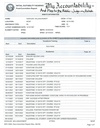
|
2023 apr 5

|
2023 mar 19
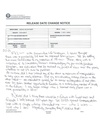
|
2023 mar 5

|
2023 mar 5

|
2023 mar 5

|
More... |

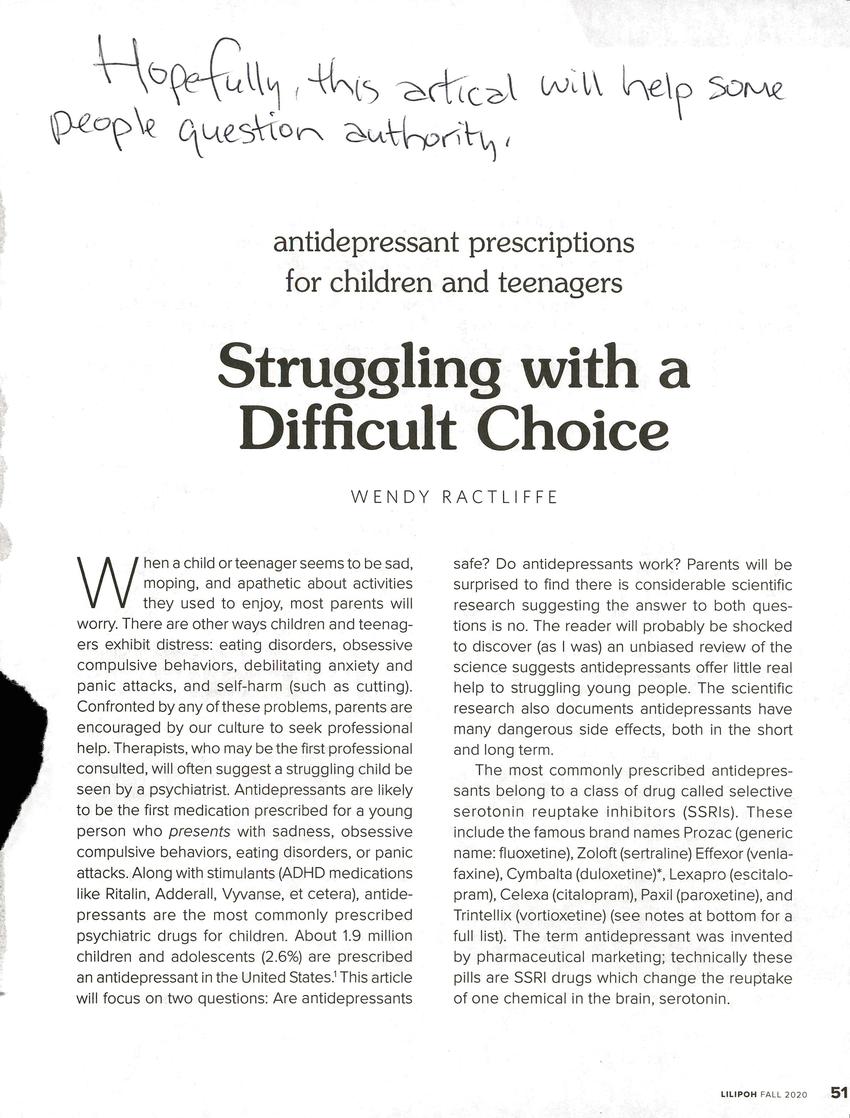
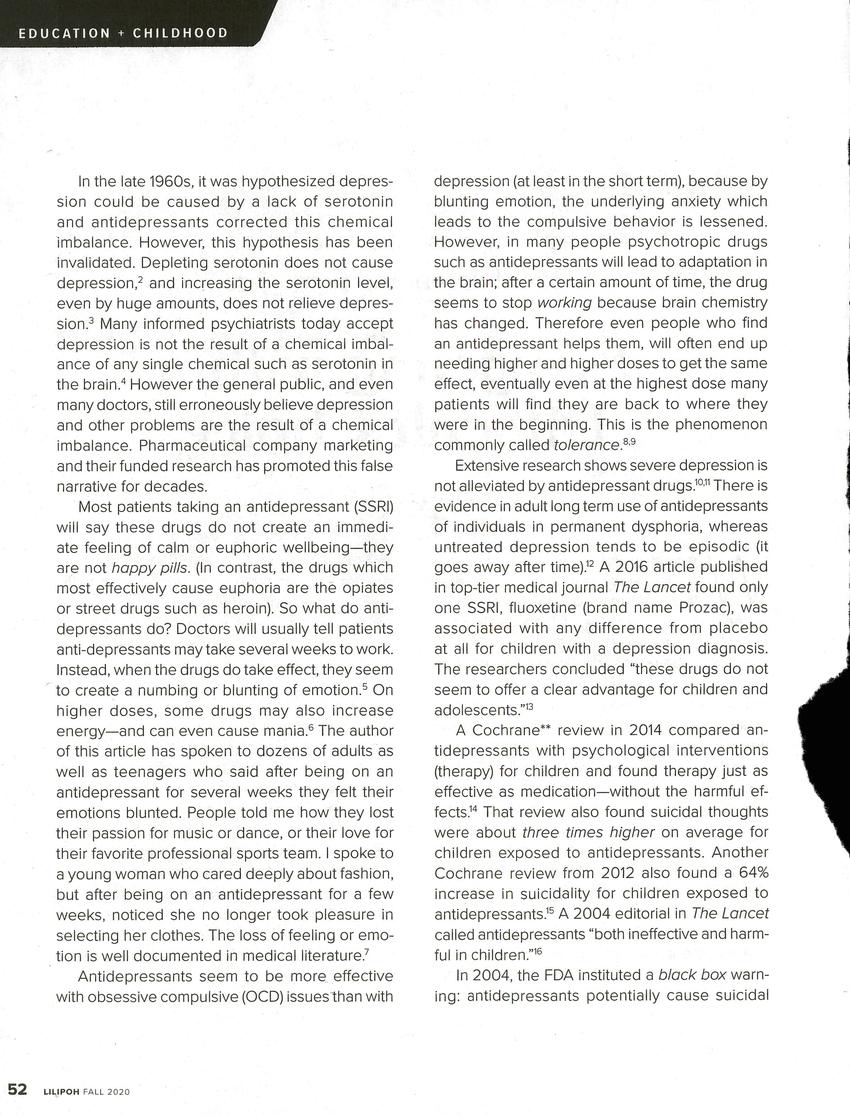
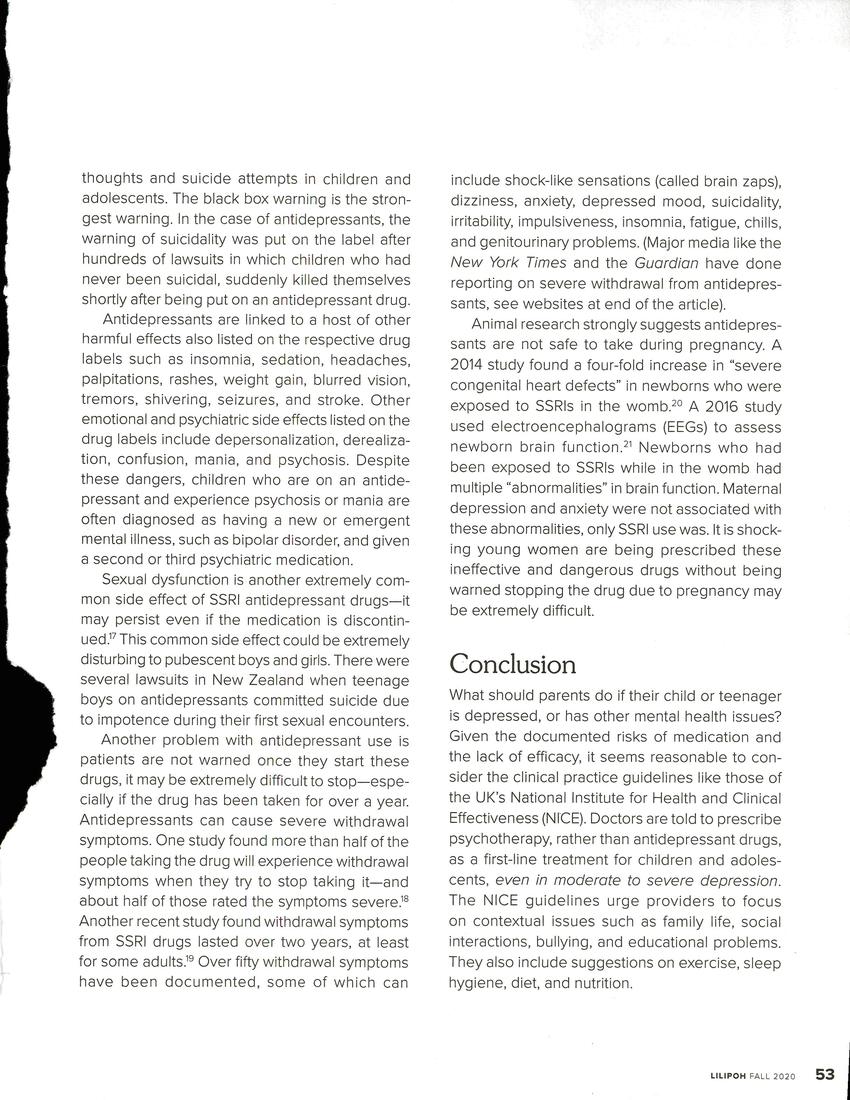
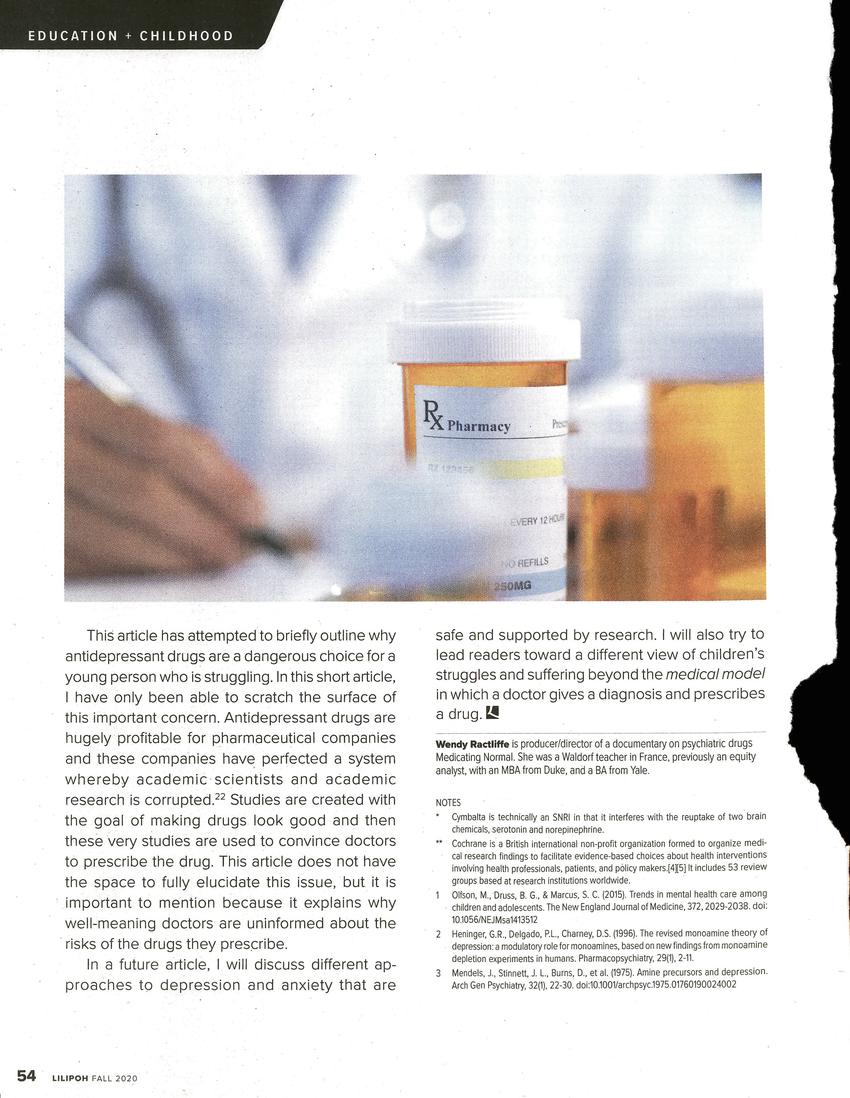
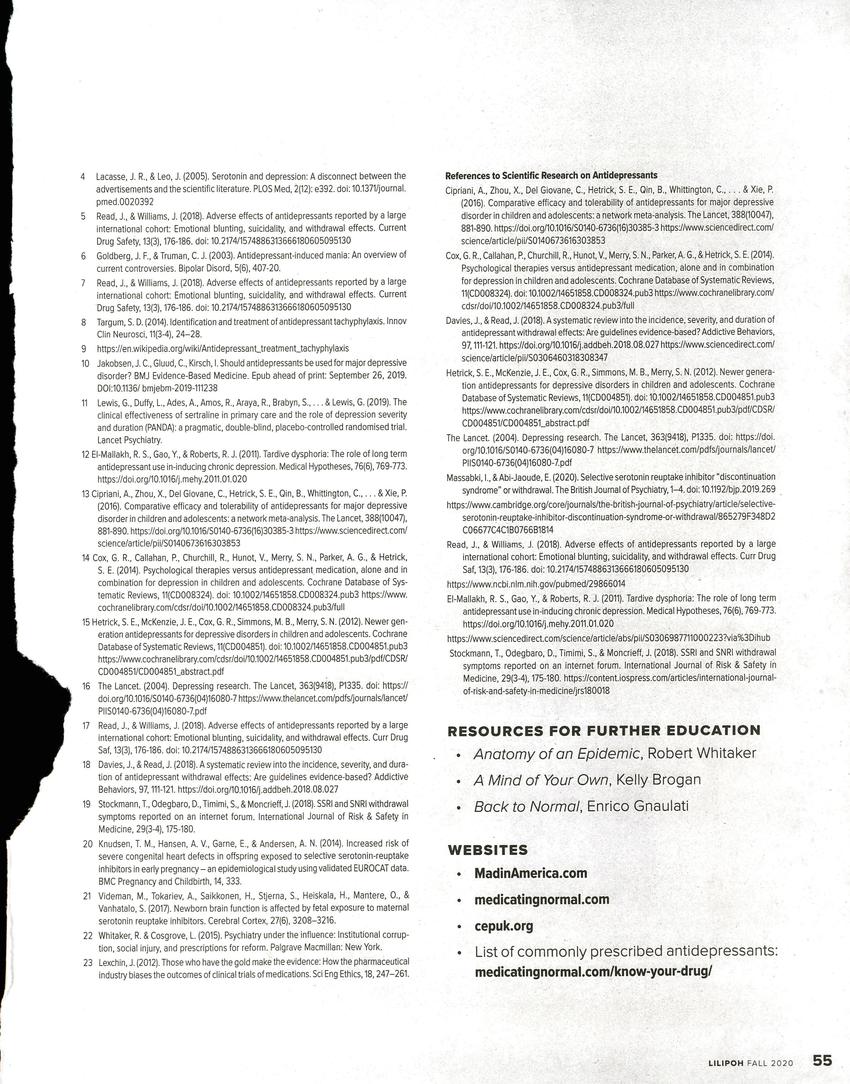


Replies (1)
May the Gods ... see the beauty in your humble caring ways to help mankind and give you a path that will help you and others awaken to the high realms. To Peace on this Beautiful Earth. Someday maybe I will meet you in person. Just know you are loved.
Love you always,
Erne xo